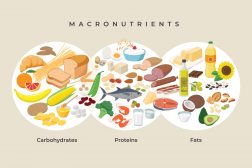Definition
noun, plural: avidities
The combined strength of bond affinities in a complex.
Usage
The term may be used in chemistry to describe the dissociation-dependent strength of an acid or base. In proteins, avidity describes the binding intensity of multiple bond interactions between proteins.
In immunology, avidity refers to the strength of antibody–antigen binding. In this regard, avidity may be different from affinity. The latter being a term used to describe the strength of a particular bond, i.e. the affinity of an antibody for the antigen as the strength of a non-covalent association between an antigen-binding site with a single antigenic epitope1. For instance, IgM may have low affinity but it has high avidity due to its 10 weak binding sites contrary to the two strong binding sites of IgG.
Miscellaneous
Compare: affinity
See also: antibody-antigen complex, protein
Reference:
1Mak, Tak W. and Mary E. Saunders. Primer to the Immune Response. Amsterdam: Academic/Elsevier, 2008. 74.
Dictionary > Avidity
You will also like...

A Balanced Diet – Carbohydrates and Fat
Apart from vitamins, the human body also requires high energy sources such as carbohydrates and fats. If you want an ove..

Stems
Stems primarily provide plants structural support. This tutorial includes lectures on the external form of a woody twig ..

Ecological Research: Measuring & Analysis
This lesson is about the methods used for ecological research, such as quadrat and transect sampling, canopy fogging, an..

Biosecurity and Biocontrol
This lesson explores the impact of biosecurity threats, and why they need to be identified and managed. Examples to incl..

Ecosystem Succession
If the balance of nature is left untouched, landscapes can change dramatically over time. A previous ecosystem is supers..

Still Water Animals
Animals living in aquatic habitats have diversified and evolved through time. They eventually occupy ecological niches a..

